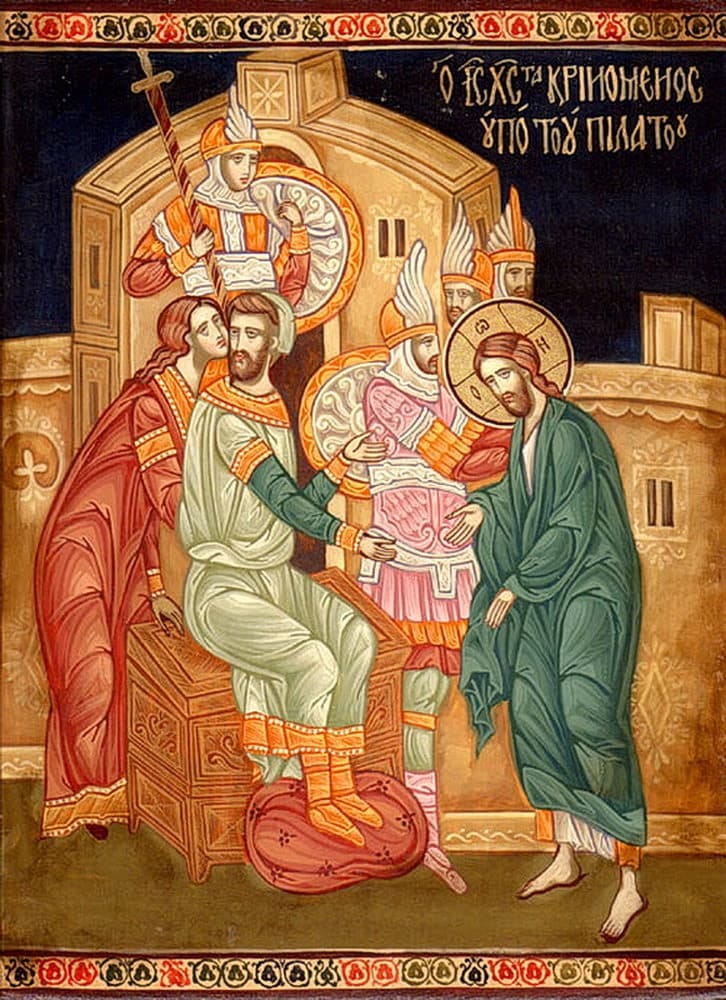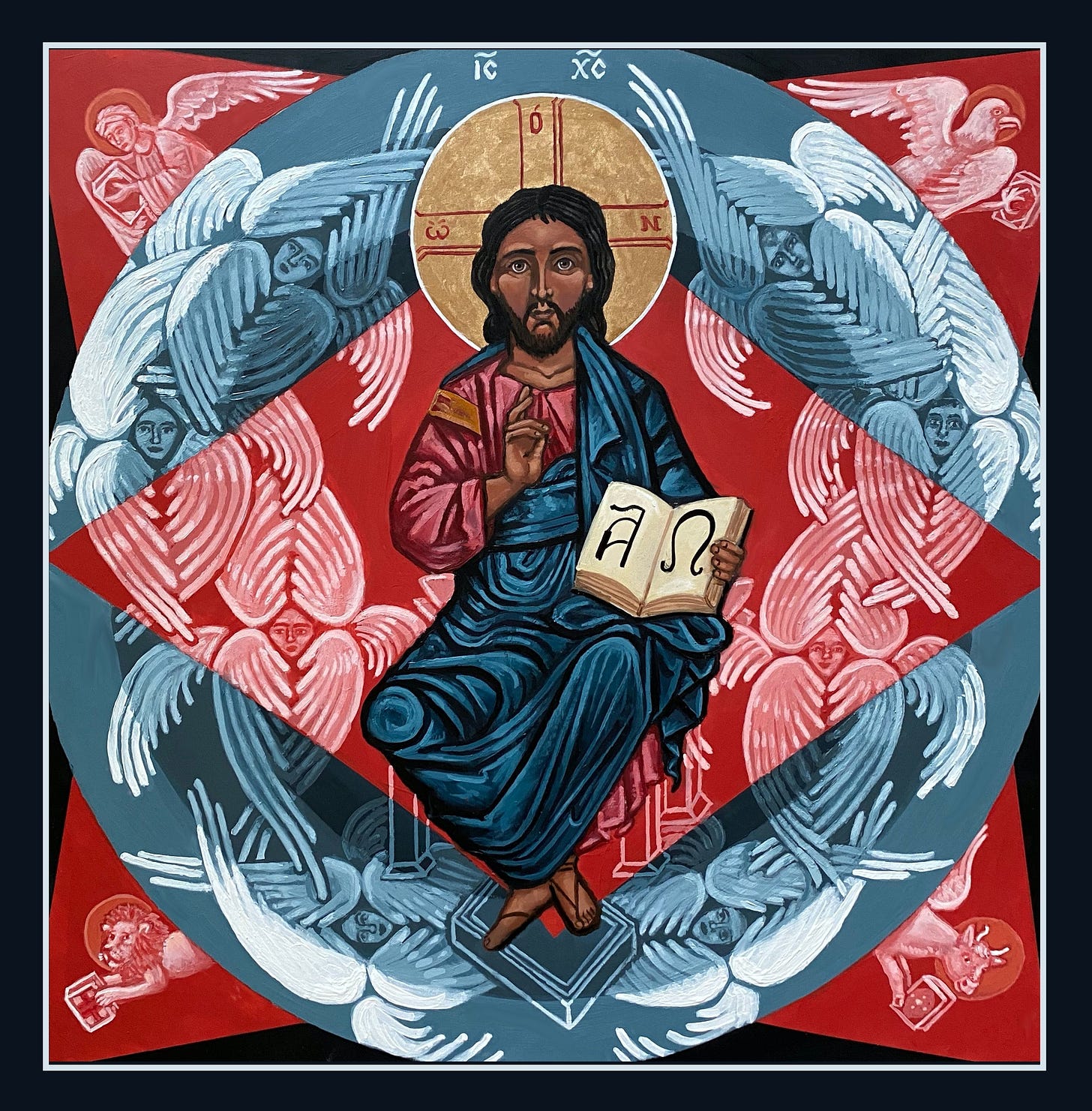One of the things we learn first in preschool, even before we can spell our names or tie our shoes, is the concept of patterns. Do you remember those lessons where the teacher placed a sequence of blocks or color squares on the table and asked, what comes next? “Blue. Red. Blue…” As children, we were thrilled when we got it right. “Blue,” we would shout with all the confidence of a preschool prophet. Patterns seemed simple then, a game of recognizing order in what otherwise might seem chaotic.
That lesson, decades later, has prepared us to navigate the world we’ve inherited from our parents and grandparents: that patterns are everywhere. Larger and more complex than shapes and colors on a preschool worksheet, patterns are woven into the fabric of creation itself. The rising and setting of the sun, the ebb and flow of the tides, and the movements of the seasons are all patterns. Patterns show us connections between things and between people. If we learn to recognize the patterns of God's work in our lives, we can see that there are times when the patterns we create or expect differ from the pattern God has given us.
For better or worse, we are shaped by patterns. We have patterns for how we approach our day, relationships, and faith. Some patterns, like the ones we learned in preschool, are simple and good. But other patterns – patterns of fear, selfishness, exclusion, or bitterness – can distort us.
We find ourselves in the middle of a charged moment between Jesus and Pilate. Picture it with me: Pilate, the Roman Governor, seated in the place of power, surrounded by symbols of the empire – authority, might, and ultimate control. Standing before Pilate is Jesus, a traveling rabbi from Nazareth. Nazareth was not known for exporting much of anything. You will recall from Sunday School lessons, Nathaniel condescendingly asking, , “Can anything good come from Nazareth?”[i] Jesus of Nazareth stands before Pilate with no army and no throne.
Pilate begins his questioning, and you can hear the sarcasm in his voice. “Are you the king of the Jews?" It is not really a question but more of a challenge. You see if Pilate can get Jesus to say, “Yes!” then Jesus can be dismissed as a seditious traitor. If Jesus says, “No.” the religious leaders lose their claim against Jesus. Pilate thinks he is the one in control here. Pilate believes one of two patterns will emerge from his line of questioning, but per usual, Jesus surprises us all by flipping the script on those who believe they are in control.
Jesus asks, “Are those your ideas, or did others talk to you about me?” While Pilate thinks he is interrogating Jesus, Jesus is now asking the questions. Jesus is not interested in the pattern Pilate is after. No, Jesus is after a new pattern for how a leader, a king, leads– a pattern originating from a softened and transformed heart. This new pattern is one of humility, service, and love, rather than dominance and control.
When Pilate protests, “Am I a Jew? Your own people handed you over to me. What is it you've done?” – Jesus responds with a line that cuts through the noise. “My kingdom is not of this world.”
Pilate does not know what to do with Jesus. Pilate is accustomed to kingdoms built on the pattern of soldiers, swords, and taxes. But here is Jesus talking about a new pattern, a different pattern for a king and kingdom. A kingdom not built on power but on truth. Not sustained by fear but love. Not ruled by coercion but by the mercy and grace of God.
Pilate is still grasping. “You're a king then!” And Jesus, with that claim of authority, unnerves us when he says, “You say that I am a king. In fact, the reason I was born and came into the world is to testify to the truth. Everyone on the side of the truth listens to me.” Truth – that is what Jesus is pointing to. Pilate sees kingdoms in terms of control and conquest, while Jesus reveals a kingdom shaped by truth. And if we are honest with ourselves, we find ourselves, like Pilate, feeling uneasy with Jesus's words. Because the truth – real God-honest truth – does not bow to the expectations of the world; does not bow to our expectations. It does not fit neatly into the patterns of this world.
When we think about nations and leaders of this world – the empires and kings – we carry certain expectations. Whether we realize it or not, there is a pattern we expect them to follow. Since ancient Rome and earlier, leadership has meant dominance. It meant occupying armies, lavish displays of wealth, and statues in your honor. A leader’s worth was measured by the land they controlled, the armies they defeated, and the number of people who trembled at their commands. This pattern is not confined to ancient empires. We tend to admire leaders who exude power and control. We expected them to be strong, decisive, and always a step ahead. They better defend our interests, fix our problems, and keep everything in order.
In Rome, Caesar was the ultimate symbol of that kind of power. Caesar embodied the pattern of worldly power: victory through force, glory in wealth, and security through fear. The Romans had a saying for this pattern – Pax Roma, the peace of Rome – but everyone knew that peace came at a cost. It was the kind of peace you could only maintain with legions of soldiers and the shadow of the sword.
Along comes Jesus, and instead of following the same pattern, he offers something entirely different. Jesus does not ride into Jerusalem on a warhorse; he enters the city on Palm Sunday on the back of a borrowed burro. He does not wield a sword; he kneels and washes feet. He does not command armies of legionnaires; he calls fishermen and tax collectors. Jesus’s pattern for kingship did not compute for Pilate, and it only sometimes makes sense to us. Jesus does not look or act like the king we expect. He does not promise power or prestige to the church. He does not fight fire with fire. Instead, Jesus says, "Blessed are the meek," and "The first shall be last."
We are so familiar with the patterns of the empire that it can be difficult for us to embrace the patterns of Christ. And still, Jesus invites us into this pattern and a life of grace that challenges assumptions of power. If we pay attention, Jesus invites us to break free from this world's patterns and step into the pattern of his grace.
[i] John 1:45
















